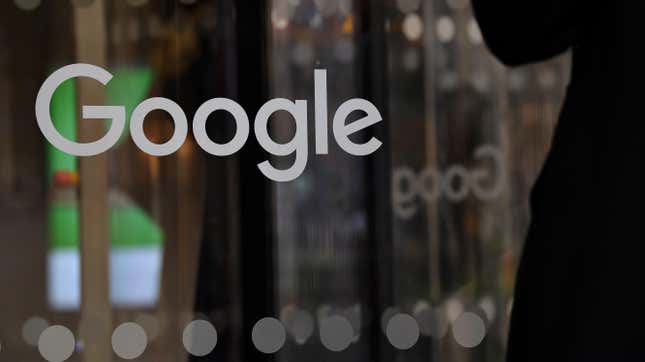
The UK government launched a new watchdog agency on Wednesday that will be tasked with keeping an eye on Big Tech companies like Google and Facebook, according to an announcement published online. The stated goal of the new watchdog is to police the “concentration of power among a small number of firms” in the world of tech—a concentration of power that’s harming consumers and small businesses alike.
The new tech-specific sub-agency, dubbed the Digital Markets Unit (DMU), will be housed inside the Competition and Markets Authority (CMA), the existing agency that regulates anti-competitive behavior in the marketplace more broadly.
The first task of the Digital Markets Unit will be to examine Big Tech’s relationship to online advertising, including the roughly £14 billion ($19.2 billion) spent on digital advertisement in the UK in 2019, according to the British government. About 80% of that money went to just two companies, Facebook and Google.
“The Digital Markets Unit has launched and I’ve asked it to begin by looking at the relationships between platforms and content providers, and platforms and digital advertisers,” the UK Digital Secretary Oliver Dowden said in a statement.
While the term “content providers,” could conceivably include a category like Facebook users and their posts, Dowden presumably means more traditional media outlets like TV stations, news websites, and newspapers.
“This will pave the way for the development of new digital services and lower prices, give consumers more choice and control over their data, and support our news industry, which is vital to freedom of expression and our democratic values,” Dowden continued.
Companies like Google and Facebook have infamously gobbled up the online ad market, leaving traditional media companies without much ad revenue, even after they firmly establish their businesses online. Why advertise with the local newspaper, the thinking goes, if you can just give that money to a bigger company like Google, which is aggregating the same content along with the content of thousands more newspapers?
The UK’s Business Secretary called the new organization “unashamedly pro-competition” and said it will “help to curb the dominance of tech giants” by letting smaller tech companies thrive. Both Apple and eBay are also mentioned explicitly in the announcement, though neither sell ads that compete with traditional news companies.
While the European Union is able to throw its weight around and levy large financial penalties against tech companies for anti-competitive behavior, the UK is playing a bit of catch-up since it left the EU and may have to create new oversight agencies.
Some smaller companies have ventured to push back against Big Tech’s destruction of the local journalism market, like when Australia created a so-called “media code” that proposed profit-sharing between tech companies like Facebook and news companies like News Corp. But Facebook wasn’t too happy with that plan, banning news entirely for a few days. Google got so angry it threatened to cut off its search product down under.
Eventually, Big Tech and the Australian government came to a negotiated agreement about giving news outlets a small cut of the profits, but this is likely the beginning rather than the end of these stand-offs internationally. And the UK will likely try something similar to Australia’s plan in the very near future, if we read between the lines.
The question, of course, is whether this new British watchdog will be able to create real change in an global industry that’s already too large to manage in any meaningful sense. British regulators seems optimistic that they can.
“Today is another step towards creating a level playing field in digital markets,” Andrea Coscelli, chief executive of the Competition and Markets Authority, said on Wednesday. “The DMU will be a world-leading hub of expertise in this area and when given the powers it needs, I am confident it will play a key role in helping innovation thrive and securing better outcomes for customers.”